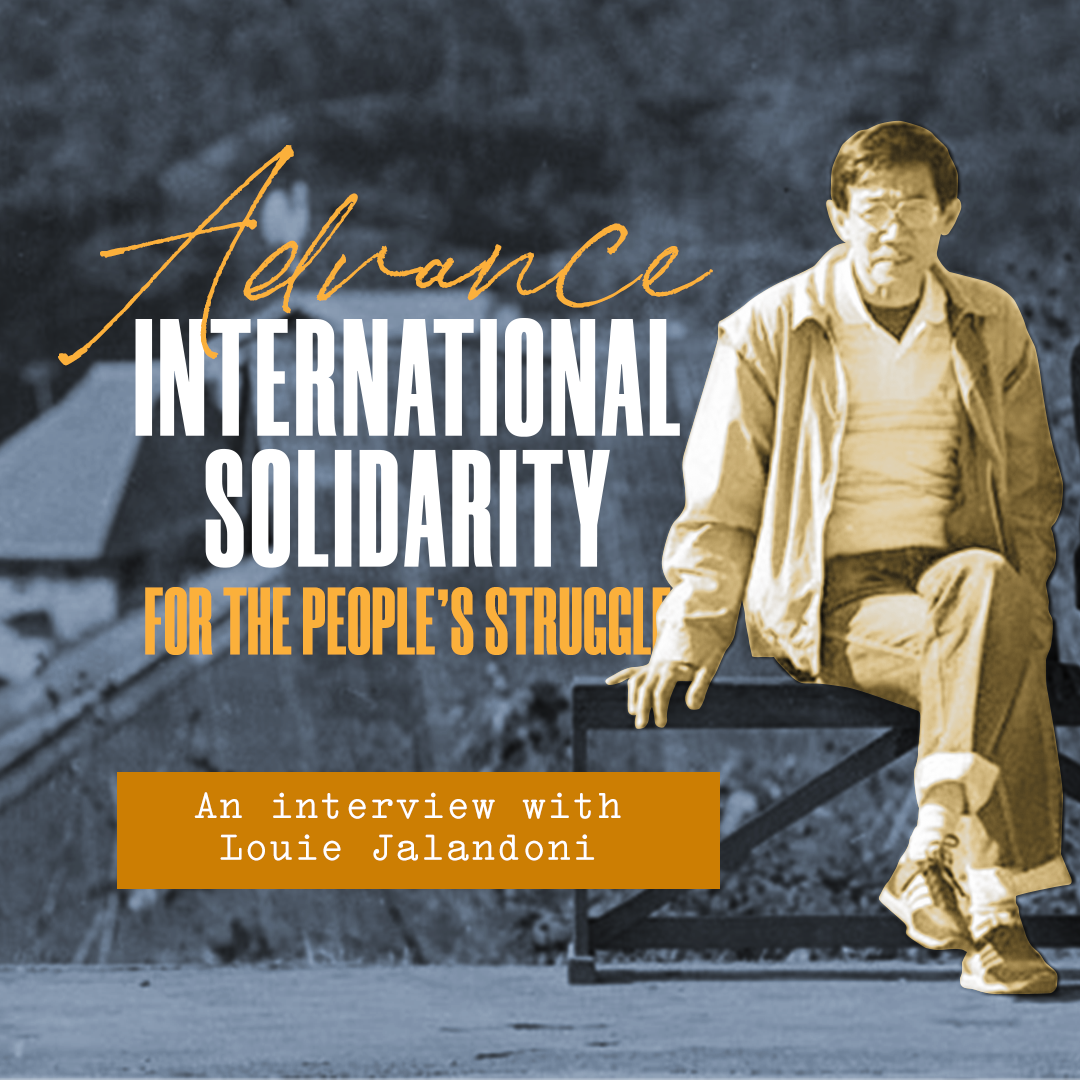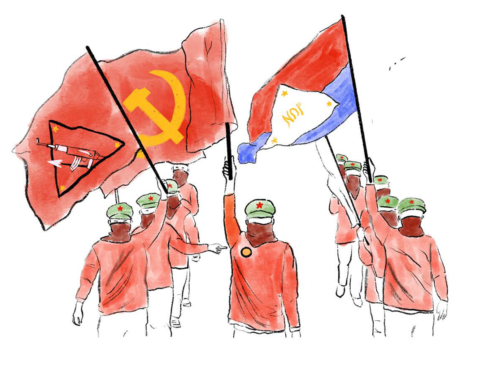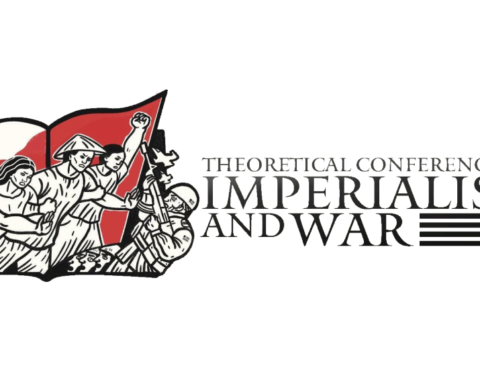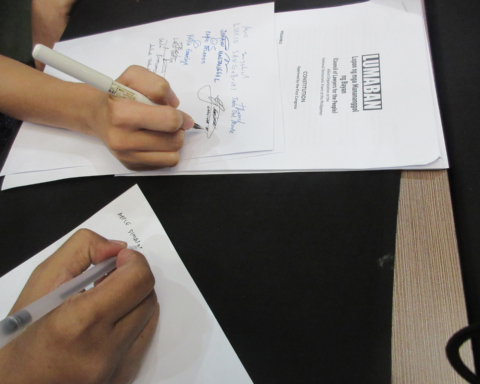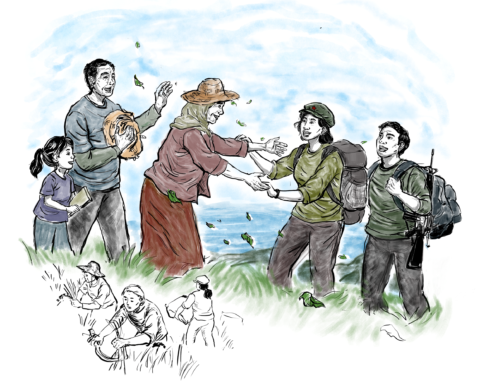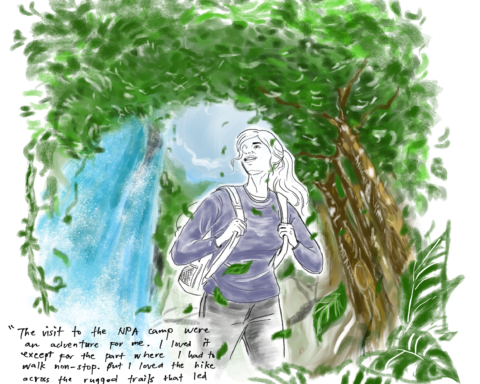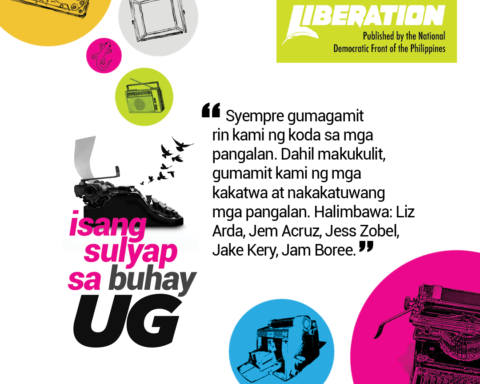Developing international solidarity relations with all peoples of the world on behalf of the Filipino people is an integral task of the National Democratic Front of the Philippines (NDFP). The NDFP is cognizant that on the basis of friendship, mutual support, and cooperation, the Filipino people and other peoples of the world, and their anti-imperialist and democratic organizations and parties, shall pursue a world that is free from imperialist oppression and exploitation.
Liberation International interviewed NDFP Senior Adviser and former Chief Negotiator Louie Jalandoni on the revolutionary movement’s international work and its significance on the struggle of the Filipino people for nationalism and democracy.
Before he became chairperson of the NDFP negotiating panel in 1995, he was NDFP vice chairperson for international affairs as early as 1980s. In 1987, he and comrade-wife Coni Ledesma opened the NDFP International Office.
Here are some of Ka Louie’s insights on the NDFP’s international solidarity work.
Liberation International (LI): Can you give a short history on the beginnings of the movement’s international work?
International work of the revolutionary movement started in the 1960s when an official Communist Party of the Philippines (CPP) delegation was sent to China. This was after the victory of the Chinese revolution. The CPP delegation developed links and cooperation with various official delegations of other Communist Parties who were also based in China. Chairman Mao led in providing the most powerful solidarity to the Filipino people’s revolutionary struggle. However, this powerful solidarity started to weaken when the influence of Deng Shao Ping increased and limited significantly the solidarity for the Filipino people.
A kasama (comrade) who went to the United States also started organizing Filipinos and building solidarity with the progressive forces in the United States.
In 1977, the movement’s international work in Europe started.
LI: Why is international work important in the national democratic struggle?
The fact that US imperialism exploits and oppresses the Filipino people, uses all its military might to attack, and uses feudalism and bureaucrat capitalism to enslave the people, make it important for the Filipino people to win international solidarity for its struggle for liberation. The conditions in the Philippines require that the Filipino people must carry out their revolution in a self-reliant way. But it needs international support to advance and win victory, in so many ways from peoples and movements abroad. This could not be one-sided for Filipinos as it also helps the growth and victory of other revolutionary struggles.
LI: What was the situation when you started international work in Europe? Was the situation favorable then?
When we started in Europe in 1976, there was already a solidarity group in the Netherlands. This was the Filippijnenegroep Nederland (FGN) which started solidarity work in 1975. The group was composed of Dutch persons who had worked in the Philippines as volunteers and missionaries and lived in the Philippines for many years. They became politicalized during their integration with the Filipino masses and wanted to help the resistance against the Marcos dictatorship. For Coni and me, this was a very positive development in carrying out our international work.
The political climate was also very favorable for Europeans to support struggles in different countries.
For example, the victory of the Algerian people against the French was supported by progressives in Europe. An Italian comrade and his wife attended an anti-imperialist conference in Algiers and through their efforts got the conference to support the Filipino people’s struggle, along with the Moro peoples struggle.
Support groups were also active for Vietnam, for Mozambique and Guinea Bissau, who were fighting for their liberation from Portugal.
Algeria then had support from very famous personalities like Lelio Basso, an Italian Senator. Together with other prominent personalities, he founded the Permanent People’s Tribunal.
One of our kasama, Francis Alessi, worked in the office of Senator Lelio Basso. Through Alessi, the Permanent People’s Tribunal (PPT) organized a Session on the Philippines in 1980 that focussed on the concerns of the NDFP and the Moro National Liberation Front (MNLF).
LI: What were some of the achievements of our international work?
The holding of the PPT Session on the Philippines was very significant. The Tribunal’s jury was composed of 10 prestigious legal experts, headed by 1967 Nobel Prize winner for Physiology, George Wald. The Tribunal’s verdict was that the NDFP was the legitimate representative of the Filipino people. It condemned Marcos as unfit to govern, and recognized the status of belligerency of the revolutionary movement of the Filipino people.
After the Tribunal, a Dutch political party (which no longer exists), the Pacifist Socialist Party, recognized the NDFP and introduced it to Parties they were in contact with, including Pasok, the ruling Party in Greece at that time. As a consequence, Pasok invited the NDFP to its Congress.
More achievements had been gained, including invitations from different political Parties in Europe and other countries. During the tours we would meet and hold discussions with members of different Parliaments.
LI: How about organizing work among our overseas Filipinos?
They are very significant. They number some 10-12 million. They serve as a very important mass base for the revolutionary struggle. With their experience, expertise, and capabilities they can help build a progressive Philippines. They can also win over the masses from different countries who also work or live abroad. Our diaspora can win solidarity from the diaspora of other countries.
LI: How markedly important is work among our compatriots abroad
The anti-Marcos Sr. dictatorship solidarity movement in Europe was very strong during that period. Is the solidarity movement for the Philippines at present the same as before? It is even greater now because the Philippine revolutionary movement has grown to more than 70 out of 81 provinces, in 110 guerrilla fronts throughout the country, and a People’s Democratic Government at various levels exists in the countryside. Hence there is stronger basis for solidarity work by compatriots abroad with other nationalities.
LI: Does the message of our people’s war and our socialist perspective continue to draw the same level of support from our foreign friends?
This depends on our own effective efforts. At this point the basis for expanding and consolidating the level of support from our foreign friends is firmer and stronger. They are very interested in learning more about our revolutionary struggle and joining celebrations of our victories.
LI: How do we relate with parties/organizations/alliances that have different ideological and political viewpoints/standpoints? How were these differences overcome?
We recognize and respect their different ideological and political viewpoints and standpoints, just as they too respect ours. We recognize the value of their struggle, as they too value our revolutionary struggle. In the process as we advance our solidarity and cooperation, so do we both advance our own struggles. This relationship is reciprocal and mutually beneficial for both sides. (Liberation International) ###

